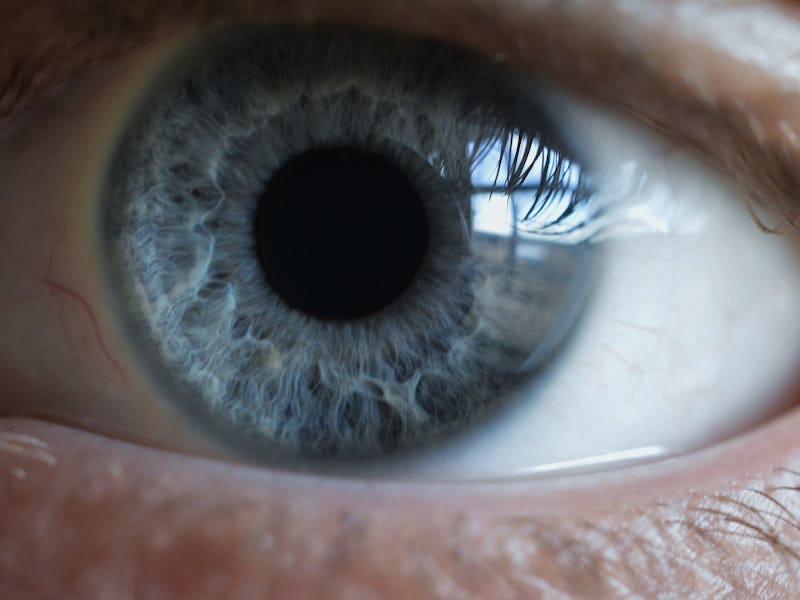Samsung Invents "Black Mirror" Contact Lenses That Live-Stream Your Life
Sci-fi comes to eye.

Samsung was awarded a patent on Tuesday for special contact lenses that take a picture when the wearer blinks. The lenses are hooked up to a smartphone, which receives a livestream of whatever the wearer is looking at. The South Korean patent, first spotted by SamMobile, describes lenses that could also display information directly over people’s eyes.
The idea of recorded eyesight has cropped up a fair few times in science fiction over the years, in works that tackle the philosophical implications of that sort of device. What if there was something you didn’t want recorded? Could somebody hack into the data and use it for their own gain? And what about things that you really didn’t want to record, would you be forced to relive moments you were inadvertently recording just to pinpoint the moments to delete?
One of the most famous uses of the idea was in The Final Cut, a 2004 film starring Robin Williams. In the near-future, humans have chips implanted in their heads that record their lives from their point of view. At the end of their lives, special editors called “cutters” mix the footage into a film to be played at their funeral.
The film has a lowly 37 percent on Rotten Tomatoes, but it brought up a lot of interesting questions. At one point, a cutter is bribed to give up the memories of one of their clients. With contact lenses recording the world around you, the act of recording an image is no longer a conscious act. Not only may people find the photos they took fall into the wrong hands, as it happens today, they could lose photos they weren’t even aware existed. If a blink is all it takes to shoot a picture, as the Samsung the patent describes, hundreds of photos could exist that the wearer didn’t even know about.
A more recent version of the idea appeared in an episode of Black Mirror entitled “The Entire History Of You.” Toby Kebbell stars as a young lawyer in a world where people have “grain implants” that record their vision. The grains can transmit to TVs: Kebbell uses this power to replay a meeting with his superiors, asking others for feedback on how they think it went. The episode was critically acclaimed. (Robert Downey Jr. has even expressed an interest in turning it into a movie.)
The idea hits on another problem. How would social interactions change, as everyone in a room was aware that their eyes might be recording? Would meetings grow more stifled, or would there be a way of telling who was and wasn’t recording?
Samsung will probably need to have answers for questions like these, and more, before society accepts the idea of placing cameras in their eyes.